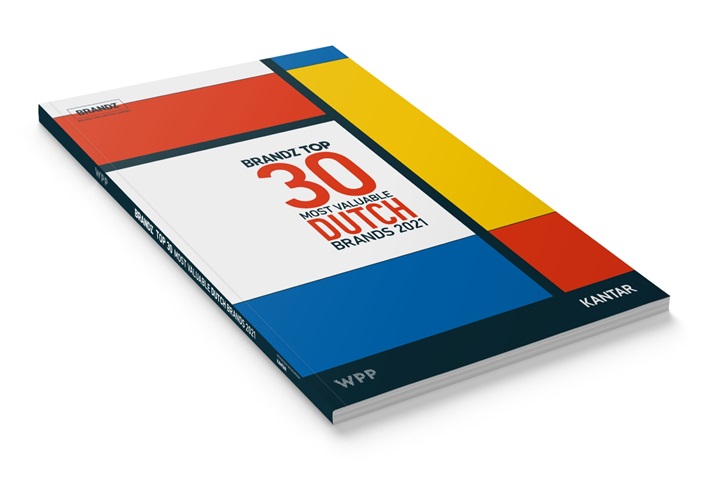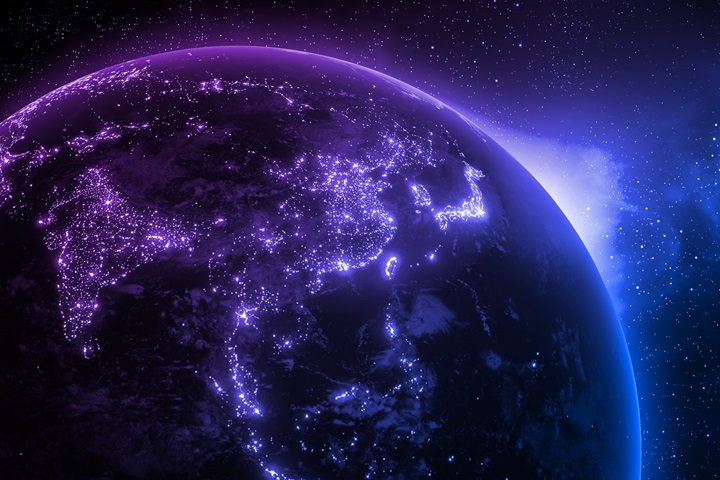Philips has entered the top three brands for the first time, in the third annual BrandZ Top 30 Most Valuable Dutch Brands ranking – announced today by WPP and Kantar.
Rising two places to no.2, Philips’ brand value has risen 8.2% to $11.9 billion, closing the gap on the Dutch number one brand Royal Dutch Shell ($14.9 billion). Following its transformation from a high-profile entertainment, white goods and lighting business into a leading manufacturer of health technology, Philips’ core products also include diagnostic imaging, patient monitoring and consumer health and home care. It was also well-placed to adapt its operations to produce ventilators in response to the coronavirus pandemic.
The value of the Top 30 remains concentrated at the top with Royal Dutch Shell accounting for almost one fifth of the entire ranking. Meanwhile, the top three brands – Royal Dutch Shell, Philips and Heineken (no.3; $11.6 billion) – comprise almost half of the total value of the Dutch Top 30.
Declining by -12% in overall brand value, the BrandZ Dutch Top 30 dropped $11 billion to $81 billion, in line with other BrandZ markets as a result of COVID-19. Dutch brands hardest hit include banks, travel services, oil & gas, insurance, food and beer. Growth categories, driven by greater in-home consumption, include beverages, lifestyle platforms (food ordering and delivery), retail and technology.
Drugstores Kruidvat (no.27; $0.23 billion) and Etos (no.28; $0.21 billion) are this year’s new entries. Their inclusion in the ranking highlights the resilience of the Dutch retail sector during the crisis, as well as the importance of health and wellness to consumers.
The uniquely connected business climate means the Netherlands has had a high degree of exposure to the global economic downturn. But, true to the country’s can-do spirit and progressive values, many Dutch consumers believe the country can emerge from the current health crisis with an even stronger presence in Europe. The Netherlands has long been accustomed to punching above its weight on the global stage. In a year when so much is in flux, that at least will not change.
Coffee tops the ‘fastest riser’ table
There was a pandemic-driven trend for people to consume more products at home, including Douwe Egberts (no.19; $0.76 billion) who recorded a year-on-year growth of 59% in brand value to make it this year’s fastest riser. Senseo (no.14; $1.05 billion), renowned for developing one of the first coffee brewing systems, is the third fastest riser, growing 35%. Online food delivery company Thuisbezorgd.nl (Takeaway.com) (no.11; $1.90 billion) and retail brands Action (no.13; $1.29 billion) and bol.com (no.16; £0.91 billion) complete this year’s list of top risers, all of which have strong emotional ties with Dutch consumers.
The BrandZ Top 10 Most Valuable Dutch Brands 2021
|
Rank 2021 |
Brand |
Category |
Brand value 2021 ($M USD) |
|
1 |
Royal Dutch Shell |
Energy |
14,947 |
|
2 |
Philips |
Technology |
11,860 |
|
3 |
Heineken |
Beer |
11,619 |
|
4 |
Booking.com |
Travel Services |
9,409 |
|
5 |
ING |
Banks |
6,529 |
|
6 |
KPN |
Telecom Providers |
4,219 |
|
7 |
Ziggo |
Telecom Providers |
2,614 |
|
8 |
Rabobank |
Banks |
2,596 |
|
9 |
Spar |
Retail |
1,990 |
|
10 |
ABN Amro |
Banks |
1,921 |
Brand personality
Brands that were perceived to be fun, creative and humorous in a sensitive way appealed to consumers during these tough times. For example, Jumbo (no.20, $0.55 billion), the second largest supermarket chain in The Netherlands, grew by over 9% and scored highly on ‘creativity’ and ‘great advertising’ indexes with its instantly recognisable and funny commercials.
Brand responsibility
Traits like honesty and respect, as well as care for the environment and employees, allowed growing brands to differentiate themselves from declining ones and grow their brand value. Dutch consumers also valued reliability in brands; growing brands were more likely to be seen as caring for their customers, offering a superior range of products, and being the best at what they do.
Brand trust
Trust has been core to the success of many Dutch Top 30 brands and can be measured against their scores for the metrics of Identification (establishing a connection at a human level), Integrity (doing what has been promised) and Inclusion (building a sense of kinship). Where 100 is the average, telecom provider KPN (no.6, $4.22 billion) scored 124 for Integrity, Bol.com scored 140 on Identification, and Albert Heijn (no.15; $1.03 billion) scored 129 on Inclusion.
Few countries are better-equipped than the Netherlands to make a recovery period a true catalyst for social transformation. Businesses and brands will have a crucial role to play in building a stronger nation. As this year’s BrandZ analysis shows, strong brands succeed in all types of weather – and the country’s iconic brands have already proven themselves to be more than capable of doing good while doing well.
Other key trends highlighted in the BrandZ Dutch Top 30 ranking include:
- Optimistic outlook – More than one in five Dutch consumers wanted brands to “be optimistic and think unconventionally” as their main reaction to the ongoing pandemic, something almost totally absent in other countries. There is room for brands to strike a more positive and proactive tone in both their messaging and their offerings to consumers
- Satisfied customers – Pandemic restrictions have put many brand categories, such as travel services, under pressure as they adapt to new customer needs. Communication providers, such as Ziggo (no.7; $2.61 billion) have increased their category satisfaction scores by anticipating consumers’ changing needs by keeping their customers regularly updated, living up to their brand promise and overdelivering on customer experience.


